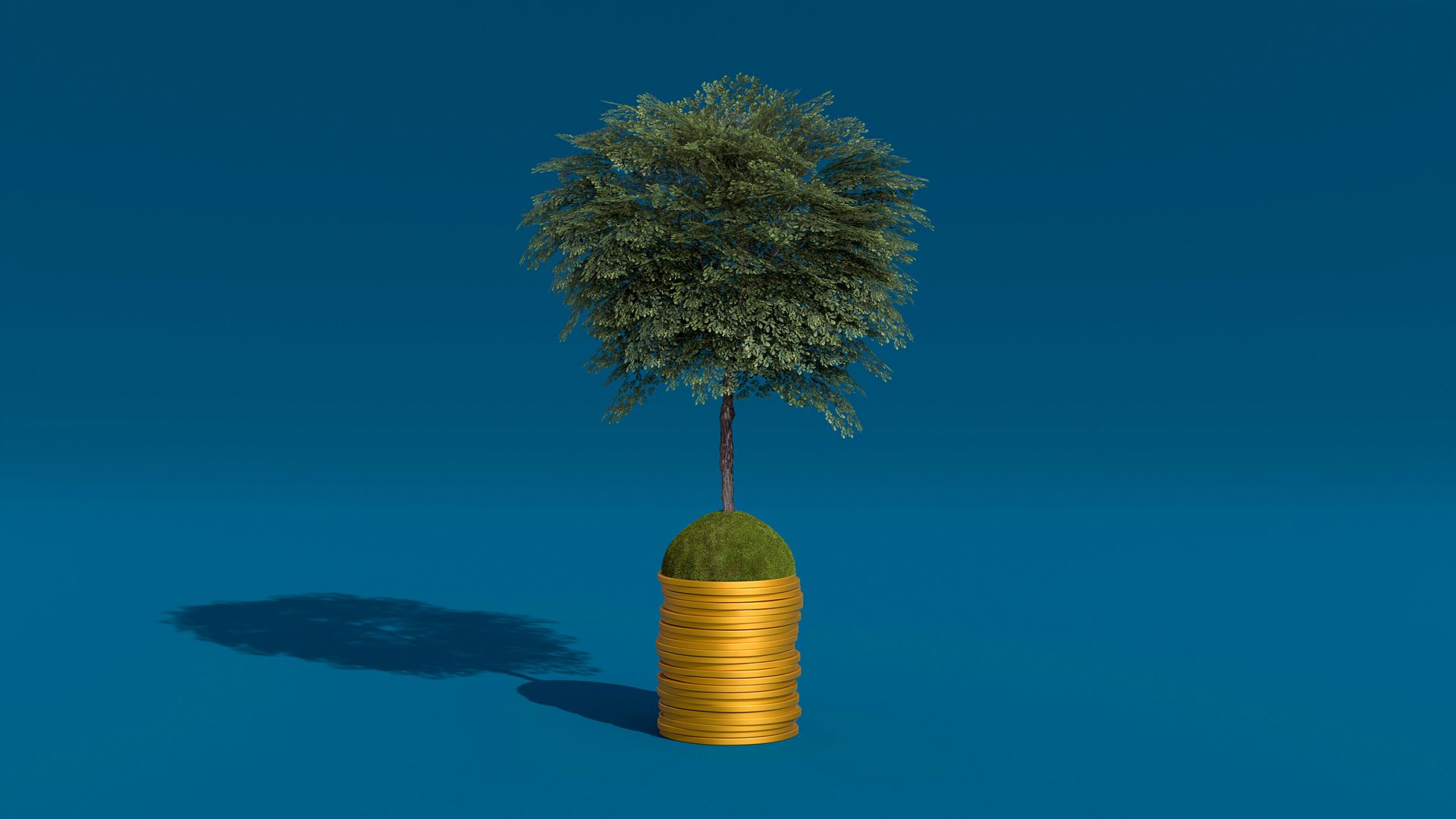One of the most powerful types of wealth we can possess is inner or spiritual wealth. Having an inner philosophy enriches our lives and is a resource we can draw on to enhance our other forms of wealth, including material wealth.
Over the years, I’ve found that all spiritual traditions, including Buddhism, apply well to the domain of money. Maybe it’s because the Buddha said that grasping is the cause of suffering and, therefore, letting go of that grasping is the path to wellness.
I’d like to share a few teachings from the Buddha, that have influenced me over the years, especially when I was creating a wealth management company that went on to manage over $3 billion in assets. I hope you find them as beneficial as I have.
Here are three Buddhist ideals, and how they can lead to success:
1. Friendship
“In Aryans' Discipline, to build a friendship is to build wealth, To maintain a friendship is to maintain wealth and to end a friendship is to end wealth.”
-Buddha
People are often surprised to hear me talk about my experiences at Wharton Business School. They’ll ask me what the most important lesson I learned while completing my MBA is, and I believe they’re expecting to hear something along the lines of ‘how to beat the competition’ But, the most important thing I learned in business school was how to cooperate with others.
Of course, when the Buddha said, “to maintain a friendship is to maintain wealth,” he was talking more about the friendship itself being a kind of wealth instead of a way to create business opportunities. However, throughout the years, I’ve noticed that there’s a direct correlation between someone’s self-worth/net-worth and the strength of their social network.
Specifically, it’s the quality of someone’s network and the quality of their relationships that can have a profound impact on the business opportunities that open up to them, not to mention the quality of professional support and encouragement needed for success.
This may seem obvious, but it’s something we often overlook in the course of everyday life.
It may also seem unfair, as some people may have access to more affluent professional networks based on the luck of their upbringing. However, if you’re worried that your life circumstances put you at a disadvantage in terms of your professional network, don’t despair.
Recognize the unique value you and your friends each bring to the table and let each friend know what that value is, and ask them to do the same for you. The big payoff comes from focusing on ways to support your friends with their personal and professional lives, and knowing that generosity is the path to abundance.
2. Joy
“Health is the greatest gift, contentment the greatest wealth, faithfulness the best relationship.”
-Buddha
“…contentment is the greatest wealth.” This is an incredibly powerful statement, especially in a day and age where contentment is hard to find.
We’re trained to believe that we should want more and that enough is a bad idea, tantamount to stagnation.
Yet, contentment is, according to the Buddha, the greatest wealth; and in my experience, contentment is also a resource that can be drawn on to create professional success.
The question is what’s the underlying connection between contentment and success? How do they work together to enrich us?
I believe the answer is one of the most powerful lessons anyone can learn in life - contentment puts us in a mindset of sufficiency, and a sufficient mindset helps us stay relaxed so that we can access our wisdom and creativity and focus on sharing our gifts.
Those who pursue a life based on sharing their gifts in a way that provides value for other people are the ones who tend to have the most professional and financial success in life.
So, when we can find that intersection between our gifts and what provides value for other people, our professional opportunities begin to increase.
If you’re struggling to identify your gifts, then you’re either in the wrong profession or you need to ask your colleagues and friends. It’s never too late to change your vocation or to get feedback from your allies.
3. Equanimity
“It is not life and wealth and power that enslave men, but the cleaving to life and wealth and power.”
-Buddha
I love the word equanimity. It has its own rhythm, and it sounds as balanced as its definition. Just saying the word equanimity to yourself in a difficult situation can make you become more equanimous in the moment.
But equanimity’s benefits don’t end there.
Equanimity is a tool that leads to all kinds of success in life and has the power to extend to our bank accounts.
How so?
It’s all about the negative states that equanimity helps ease.
Consider that it’s impossible to be equanimous and in a state of grasping at the same time, or as the Buddha says, “…cleaving to life and wealth and power.”
Equanimity means being completely ok with yourself and your situation, and having the resilience to stay composed in difficult situations. Grasping for things to be different than they are, therefore, is the opposite of equanimity. Just recall how imbalanced you became the last time you were grasping for something to happen at work, with a relationship, or with your favorite sports team. Equanimity enhances our ability to make wise, less reactive financial decisions.
For example, if we’re interviewing for a new job, and we are in a grasping mindset, we might come off as needy and focused only on how the new job might benefit us. However, being equanimous helps us focus on the value we can provide to the potential employer.
Any potential employer is more likely to hire someone who helps them create value rather than someone just craving the position.
This quote from the Buddha turns our thinking on its head. Our culture teaches us ideas like ‘money is the root of all evil’, and ‘absolute power corrupts absolutely’, but when we consider that it’s the grasping for these things that enslaves us, we realize that, wealth and power aren’t inherently good or bad - they’re simply resources that we can all draw on to improve quality of life for ourselves and those around us.
Unlike equanimity and grasping, spirituality and material wealth aren’t mutually exclusive. Our lives can be filled with both inner and outer wealth, and it’s by having sufficiency in both that we find ourselves at our richest.
SHARE THIS POST
The road to financial freedom is easier when you share the journey. By signing up for Spencer’s newsletter, you’re joining a growing community of people who’ve found their way to “Enough.”





